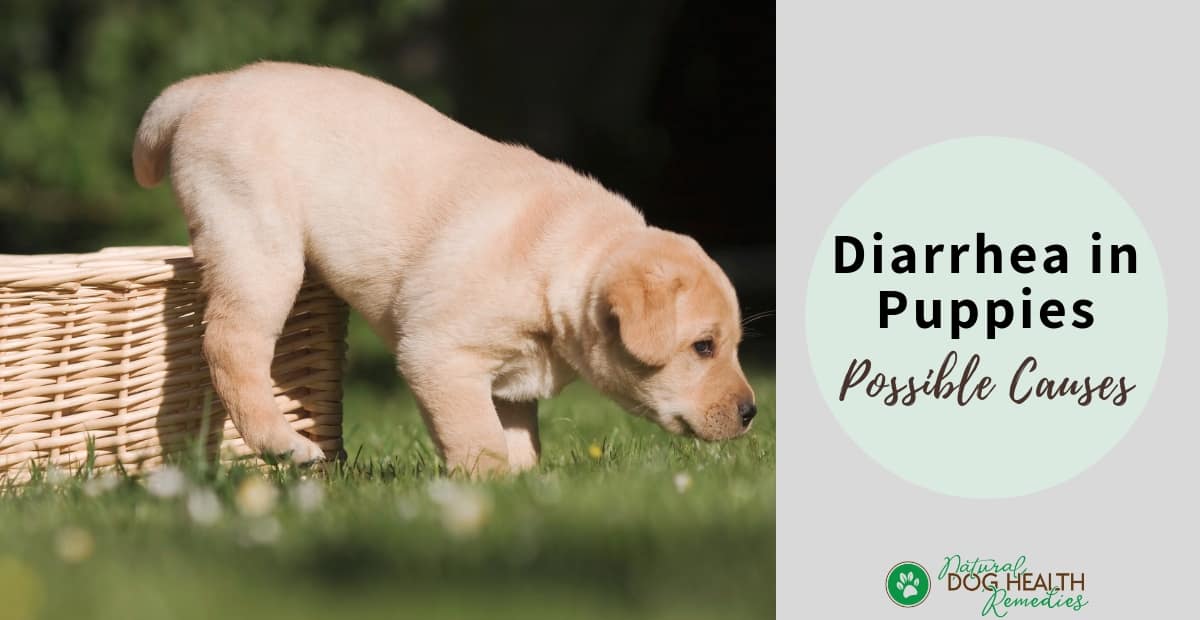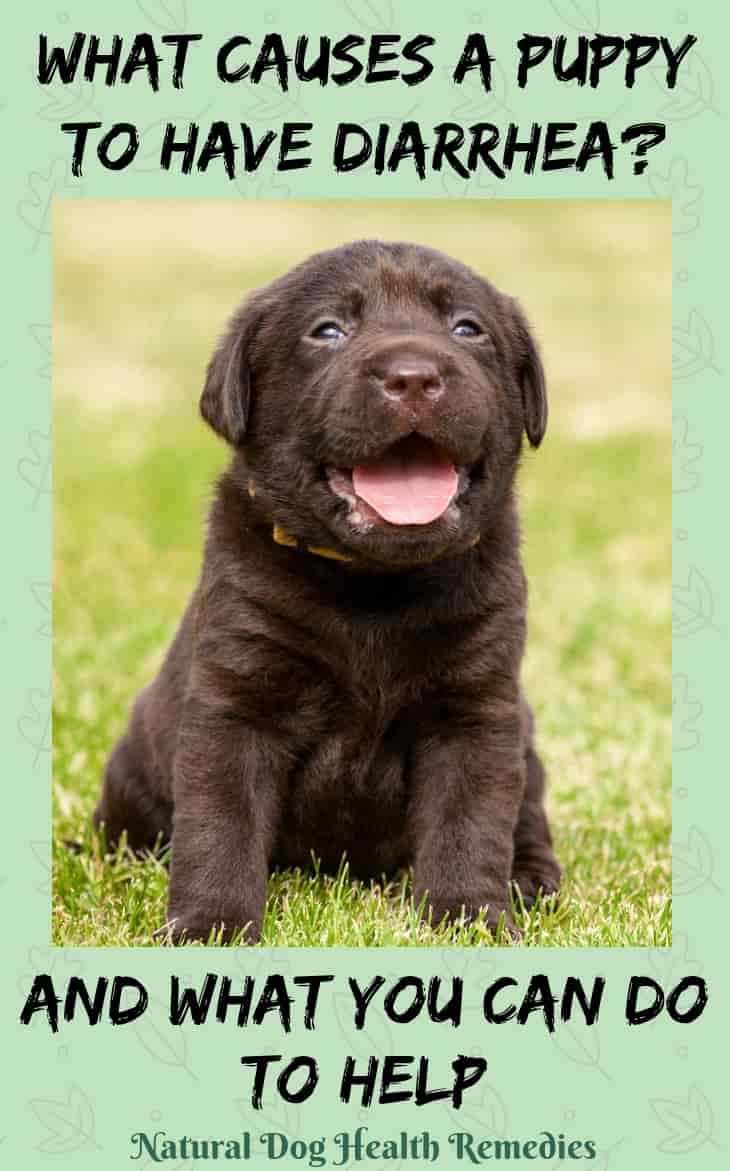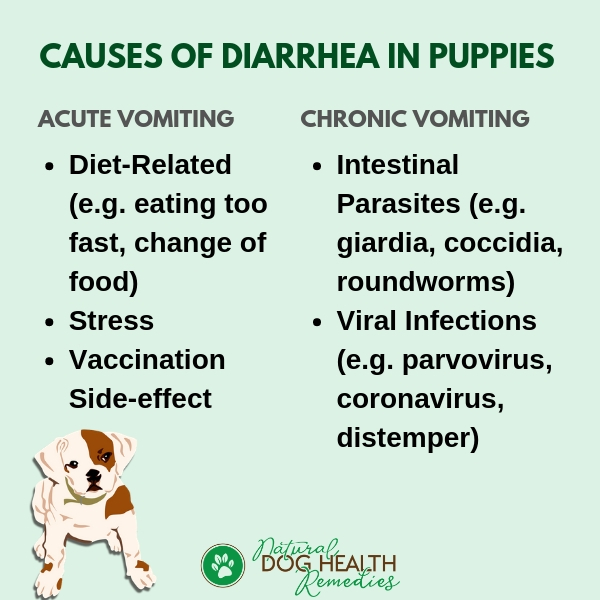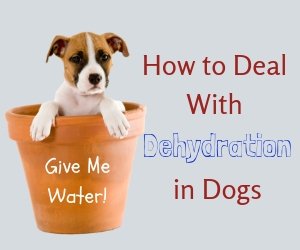Diarrhea in Puppies
(FTC Disclosure: If you make a purchase via a link on this page, I may receive a small commission, at no added cost to you.)

Overview
If you have a puppy, at one point or another, you will have to deal with diarrhea!
Diarrhea, which can be acute or chronic, is rather common in puppies. Depending on the nature and severity of the diarrhea, it can mean life or death to your puppy. This is especially true if yours is a very young puppy, because persistent diarrhea can quickly lead to dehydration, which in itself can be fatal.
It is therefore important to learn more about what causes puppy diarrhea and how to deal with the situation when it occurs.
Common Causes of Acute Diarrhea in Puppies
Acute diarrhea by the following causes is usually not serious and should go away in a few days, once the cause has been identified and corrected.
The most important thing is to prevent dehydration. Make sure that the puppy has plenty of water to drink. You can also give electrolyte fluid such as Rebound to replenish lost fluid.
Diet
One common cause of puppy diarrhea is related to diet and feeding. For example, a puppy will develop mild diarrhea if being fed too much, or if the food is not agreeable with the puppy.
As well, very often if we switch a puppy's food from one brand to another, or from one type to another (e.g. from kibbles to homemade food), she will also develop diarrhea. It is therefore very important to remember to make the switch gradually.
A general rule of thumb is to try to make the complete switch in about one week. First, mix 10% or so of the new food with 90% of the old food. Then gradually increase the new food to 25% while decreasing the old food, and so on. This gradual switch is to make sure that the puppy's digestive system is not put under too much stress.
Stress
Another very common cause of diarrhea in puppies is stress. Usually a puppy will develop diarrhea if there is some kind of change in her surroundings that can cause her stress or excitement, e.g. first day to "school", a visit to the vet, or even when you have overnight visitors.
Stress-related diarrhea is not serious and will usually go away when the stress is gone.
In the meantime, try to monitor the situation and make sure that the puppy has enough fresh water to drink, and that she is well rested.
Vaccinations
Many puppy parents wonder if puppy shots can cause loose stool or diarrhea.
The answer is Yes! In fact, one possible reaction to vaccinations is diarrhea. If your puppy develops diarrhea and/or vomiting after vaccination, chances are she is having an adverse reaction to the vaccine (this condition is called vaccinosis).
A dose of the homeopathic remedy Thuja within two hours of the injection will usually solve the problem.
Also visit this page for more general information on vaccinations.
Possible Causes of Chronic Diarrhea in Puppies
If your puppy has chronic diarrhea, or if the diarrhea is very watery, or contains mucous or blood, then you need to take the puppy to the vet immediately.
Diarrhea caused by the following is serious and can even be life-threatening if left untreated.
Worms and Other Parasites
 Worm infestations can cause diarrhea in puppies.
Worm infestations can cause diarrhea in puppies.
Roundworms are especially common in puppies. Some puppies acquire roundworms from their mothers, and infestation can only be detected by fecal analyses. In serious cases, the puppy will have diarrhea and vomiting.
Other parasites such as Giardia or Coccidia can also cause diarrhea in puppies and dogs. Usually the diarrhea is foul-smelling (sometimes mucoid or bloody), and is accompanied by vomiting, dehydration, and appetite loss.
Viral Infections
Parvovirus and coronavirus are two leading viruses that cause diarrhea in puppies and dogs.
Puppies infected with parvovirus will have diarrhea usually accompanied by vomiting, sometimes fever, whereas coronavirus causes mainly diarrhea (vomiting is not common).
In both cases, the infected puppy will also become lethargic and may lose her appetite. There is no specific treatment for both parvovirus and coronavirus infections. The only thing that can be done is to manage the symptoms. Dehydration prevention is of the utmost importance.
Another possible viral infection that causes diarrhea in puppies is distemper.
Diarrhea is usually accompanied by vomiting, fever, nasal discharge, and coughing. Young puppies (under 4 months of age) and dogs not vaccinated against the disease are particularly vulnerable.

General Care for Puppies with Diarrhea
If your puppy's diarrhea is mild and she seems happy and playful, try to fast her for 12 hours (best done during night time).
If she gets better the next morning, give her some low-sodium chicken broth and perhaps some plain pumpkin puree. If she does not get better for the next day or so, take her to the vet.
For very young puppies, here is an effective herbal remedy to treat a case of mild diarrhea (suggested by Dr. Pitcairn):
You need:
- 2 teaspoons of dried chamomile herb
- 1/2 teaspoon of sea salt
- 1 pint of boiling water
Add the herb to the boiling water and let steep for 10 minutes. Pour the liquid through a cheesecloth and add 1/2 teaspoon of sea salt to the liquid. Give 2-3 teaspoons of this liquid to the young puppy 3 times a day. In between, also give the puppy electrolyte solution.
Important!
Since puppies have weaker immune systems and can get seriously ill in a short period of time, if your puppy has moderate to severe diarrhea, DO NOT try to treat the pup at home and DO NOT use any home remedies. Rush her to the vet instead!
As mentioned above, puppy diarrhea could be caused by serious underlying health problems such as viral infections. Puppies could die from an infection in a matter of days.
Therefore, DO NOT waste any time to try to fix the symptom (diarrhea) while leaving the cause untreated.
Eldredge, et al. Dog Owner's Home Veterinary Handbook 4th edition (Wiley Publishing, 2007).
C.J. Puotinen, Natural Remedies for Dogs and Cats (Keats Publishing, 1999).
M. Goldstein, The Nature of Animal Healing (Ballantine Books, 2000).
R.H. Pitcairn, The Complete Guide to Natural Health for Dogs and Cats (Rodale, 2005).





